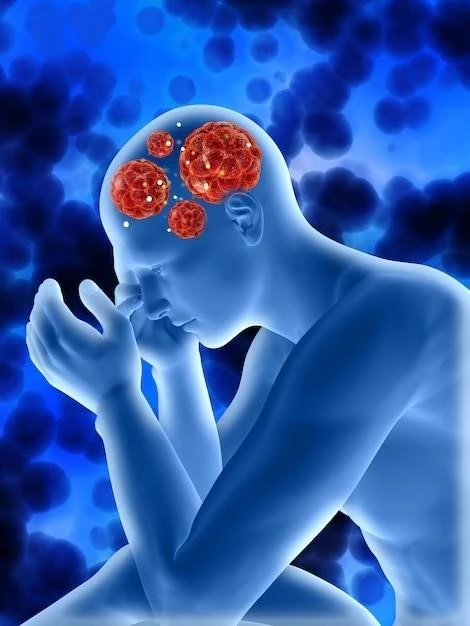Disease ⎼ Konigsmark-Knox-Hussels Syndrome
Overview of Konigsmark-Knox-Hussels syndrome
Konigsmark-Knox-Hussels syndrome is a rare genetic disorder characterized by neurologic symptoms such as seizures, muscle stiffness, cognitive impairment, and developmental delay. Individuals with this syndrome may exhibit brain abnormalities due to a specific gene mutation.
This neurological condition typically presents in early childhood and can impact a person’s daily functioning. The severity of symptoms can vary among individuals, with some experiencing milder effects while others may have more profound struggles.
Due to the complexity of Konigsmark-Knox-Hussels syndrome, a comprehensive approach to management is crucial. This often involves a multidisciplinary team of medical professionals, including neurologists, geneticists, physical therapists, occupational therapists, and speech therapists.
While there is currently no cure for this syndrome, various treatment options can help alleviate symptoms and improve quality of life. Additionally, ongoing research studies aim to deepen our understanding of the condition, potentially leading to advancements in diagnosis and management.
Medical professionals play a vital role in diagnosing, treating, and supporting individuals with Konigsmark-Knox-Hussels syndrome. Their expertise and collaborative efforts are essential in providing comprehensive care and improving outcomes for those affected by this rare disease.
Symptoms of Konigsmark-Knox-Hussels syndrome
Konigsmark-Knox-Hussels syndrome is associated with a range of neurologic symptoms that can significantly impact an individual’s health and well-being. Common symptoms of this rare genetic disorder include seizures, muscle stiffness, cognitive impairment, and developmental delay.
Seizures are a prevalent symptom in individuals with Konigsmark-Knox-Hussels syndrome, with varying types and levels of severity. Muscle stiffness, known as spasticity, can affect mobility and coordination, leading to challenges in daily activities.
Cognitive impairment is another hallmark of this syndrome, affecting intellectual functioning, learning, and memory. Developmental delays may manifest in delays in achieving milestones such as walking and talking.
Individuals with Konigsmark-Knox-Hussels syndrome may also experience additional symptoms such as speech difficulties, behavioral issues, and sensory abnormalities. The combination of these symptoms can pose significant challenges for patients, families, and caregivers.

Given the complexity of symptoms associated with Konigsmark-Knox-Hussels syndrome, a multidisciplinary approach involving various medical professionals is essential to address the diverse needs of individuals affected by this rare disease. Treatment strategies may focus on alleviating symptoms, improving quality of life, and providing support to enhance overall well-being.
Brain Abnormalities in Konigsmark-Knox-Hussels syndrome
Individuals with Konigsmark-Knox-Hussels syndrome may exhibit a variety of brain abnormalities that contribute to the neurological symptoms associated with this rare genetic disorder. These abnormalities often result from specific gene mutations that affect brain development and function.
Brain imaging studies, such as MRIs, have shown structural and functional differences in the brains of affected individuals compared to those without the syndrome. These differences can include changes in brain size, shape, and connectivity, impacting various regions responsible for motor control, cognition, and seizure regulation.
Common abnormalities observed in the brains of individuals with Konigsmark-Knox-Hussels syndrome may include malformations of cortical development, white matter abnormalities, and alterations in the hippocampus and other brain structures. These anomalies can contribute to the diverse symptoms experienced by individuals with the syndrome.
The understanding of how these brain abnormalities influence the clinical manifestations of Konigsmark-Knox-Hussels syndrome is crucial for accurate diagnosis and treatment planning. Medical professionals, including neurologists and neuroimaging specialists, play a significant role in interpreting imaging findings and correlating them with the patient’s symptoms.
Ongoing research studies continue to investigate the underlying mechanisms of brain abnormalities in Konigsmark-Knox-Hussels syndrome, aiming to elucidate the pathophysiology of the condition and identify potential targets for therapeutic interventions. Advancements in neuroimaging technologies and genetic research offer promising avenues for enhancing our knowledge of this complex neurological disorder.
Diagnosis of Konigsmark-Knox-Hussels syndrome
Diagnosing Konigsmark-Knox-Hussels syndrome often involves a comprehensive evaluation by medical professionals to identify the characteristic symptoms and genetic markers associated with this rare disorder. Clinical diagnosis may include a thorough medical history review, physical examination, and specialized testing.
Neurological symptoms such as seizures, muscle stiffness, cognitive impairment, and developmental delay are critical components in the diagnostic process. Additionally, brain imaging studies, genetic testing, and metabolic evaluations may be used to confirm the presence of Konigsmark-Knox-Hussels syndrome.
Brain imaging techniques like magnetic resonance imaging (MRI) can reveal structural abnormalities in the brain that are indicative of the syndrome. Genetic testing plays a key role in identifying specific gene mutations that are linked to Konigsmark-Knox-Hussels syndrome.
A multidisciplinary approach involving neurologists, geneticists, and other specialized healthcare providers is essential for an accurate diagnosis of this complex genetic disorder. Medical professionals collaborate to interpret test results, assess clinical symptoms, and formulate a tailored treatment plan based on the individual’s specific needs.
Early and accurate diagnosis of Konigsmark-Knox-Hussels syndrome is crucial for initiating timely interventions and support services to address the diverse needs of affected individuals and their families. Ongoing advancements in genetic testing and diagnostic technologies continue to improve the diagnostic accuracy and efficiency for this rare neurological condition.
Treatment options for Konigsmark-Knox-Hussels syndrome
Managing Konigsmark-Knox-Hussels syndrome requires a multidisciplinary approach aimed at addressing the diverse symptoms and challenges associated with this rare genetic disorder. While there is currently no cure for the syndrome, various treatment options can help improve quality of life and alleviate specific symptoms.
Medical professionals, including neurologists, physical therapists, occupational therapists, and speech therapists, play a critical role in developing and implementing individualized treatment plans for patients with Konigsmark-Knox-Hussels syndrome.
Therapeutic interventions may include antiepileptic medications to manage seizures, muscle relaxants to address muscle stiffness, and cognitive therapies to enhance cognitive function. Physical therapy and occupational therapy can help improve mobility, coordination, and independence in daily activities.
Speech therapy may be beneficial for individuals experiencing speech difficulties, while behavioral therapy can assist in managing behavioral issues often associated with the syndrome. Supportive services such as special education programs and assistive devices can also contribute to enhancing overall well-being.
Regular monitoring by a healthcare team is essential to track progress, adjust treatment strategies as needed, and provide ongoing support to individuals and their families. Collaborative care and open communication between medical professionals, caregivers, and patients are key elements in optimizing the management of Konigsmark-Knox-Hussels syndrome.
Participation in clinical trials and research studies may offer opportunities to access novel treatment approaches and contribute to the advancement of knowledge about this rare neurological condition. Continued research and collaboration within the medical community are essential in improving outcomes and quality of life for individuals affected by Konigsmark-Knox-Hussels syndrome.
Research Studies on Konigsmark-Knox-Hussels syndrome
Research studies on Konigsmark-Knox-Hussels syndrome play a crucial role in advancing our understanding of this rare genetic disorder, its underlying mechanisms, and potential treatment options. Investigations focus on unraveling the complex genetic basis of the syndrome, identifying biomarkers, and exploring novel therapeutic strategies.
Genetic research aims to pinpoint specific gene mutations responsible for Konigsmark-Knox-Hussels syndrome, shedding light on how these mutations affect brain development and function. Understanding the genetic pathways involved in the disorder is essential for developing targeted treatments tailored to the individual’s genetic profile.
Neuroimaging studies continue to explore the structural and functional brain abnormalities associated with Konigsmark-Knox-Hussels syndrome. Advanced imaging techniques provide insights into how these brain alterations contribute to the diverse neurological symptoms observed in affected individuals.
Clinical trials evaluate the effectiveness and safety of potential therapeutic interventions, including new medications, rehabilitative approaches, and supportive therapies. These studies aim to improve symptom management, enhance quality of life, and pave the way for innovative treatment options for individuals with Konigsmark-Knox-Hussels syndrome.
Collaboration among researchers, clinicians, and patients is vital for furthering research efforts in this field. Sharing data, insights, and outcomes from research studies can accelerate progress in understanding the syndrome and developing evidence-based interventions.
By participating in research studies, individuals with Konigsmark-Knox-Hussels syndrome and their families contribute to the collective knowledge that drives scientific advancements in diagnosis, treatment, and care practices for rare neurological conditions. Research endeavors hold promise for improved outcomes and enhanced support for those affected by Konigsmark-Knox-Hussels syndrome.
Importance of Medical Professionals in Managing the Syndrome
Medical professionals play a pivotal role in the comprehensive management of Konigsmark-Knox-Hussels syndrome, a rare genetic disorder characterized by complex neurologic symptoms. Neurologists, geneticists, physical therapists, occupational therapists, speech therapists, and other healthcare providers collaborate to deliver personalized care and support to individuals affected by the syndrome.
Neurologists are instrumental in diagnosing and monitoring the neurological aspects of the syndrome, including seizures, muscle stiffness, and cognitive impairment. Geneticists work to identify specific gene mutations associated with Konigsmark-Knox-Hussels syndrome, guiding targeted treatment approaches.
Physical therapists play a key role in improving mobility, strength, and coordination, helping individuals maximize their functional independence. Occupational therapists focus on enhancing activities of daily living and providing adaptive strategies to promote autonomy and quality of life.
Speech therapists address speech and language challenges, working to improve communication skills and support cognitive development. Together, these healthcare professionals create a multidisciplinary team that addresses the diverse needs of individuals with Konigsmark-Knox-Hussels syndrome.
Medical professionals provide ongoing monitoring, management, and support for patients and their families, promoting a holistic approach to care that considers physical, cognitive, and emotional well-being. Their expertise and coordination are essential in optimizing treatment outcomes and enhancing the overall quality of life for those living with this rare genetic disorder.
Continued collaboration, education, and research among medical professionals are paramount in advancing the understanding and management of Konigsmark-Knox-Hussels syndrome. By working together and staying informed about the latest developments in the field, healthcare providers can offer the best possible care and support to individuals affected by this complex neurological condition.
In conclusion, Konigsmark-Knox-Hussels syndrome is a rare genetic disorder characterized by a range of neurologic symptoms, developmental challenges, and brain abnormalities resulting from specific gene mutations. While there is no cure for this syndrome, the collaborative efforts of medical professionals, including neurologists, geneticists, and therapists, are essential in providing comprehensive care and support to individuals affected by the condition.
Diagnosis of Konigsmark-Knox-Hussels syndrome involves a careful evaluation of symptoms, genetic testing, and neuroimaging studies to confirm the presence of the disorder. Treatment options focus on symptom management, functional improvement, and quality of life enhancement through a multidisciplinary approach that includes medications, therapies, and supportive services.
Research studies continue to explore the genetic underpinnings, brain abnormalities, and treatment strategies for Konigsmark-Knox-Hussels syndrome, aiming to advance our understanding of this complex condition and improve patient outcomes. Participation in research endeavors and clinical trials is crucial for driving progress and innovation in managing this rare neurological disorder.
The importance of medical professionals in managing Konigsmark-Knox-Hussels syndrome cannot be overstated. Their expertise, dedication, and collaborative efforts are vital in delivering personalized care, support, and resources to individuals and families affected by this rare genetic condition. By working together and staying abreast of advancements in the field, healthcare providers can make a meaningful difference in the lives of those living with Konigsmark-Knox-Hussels syndrome.
